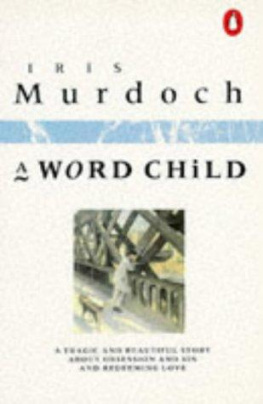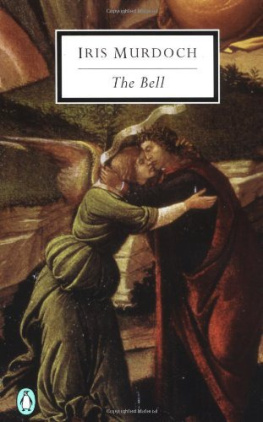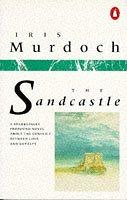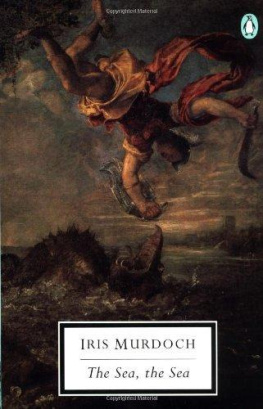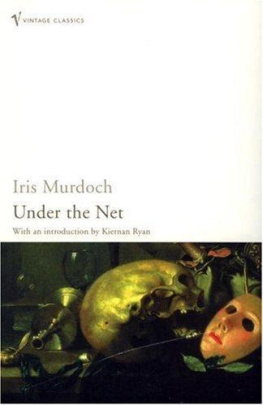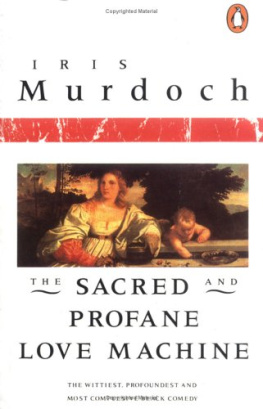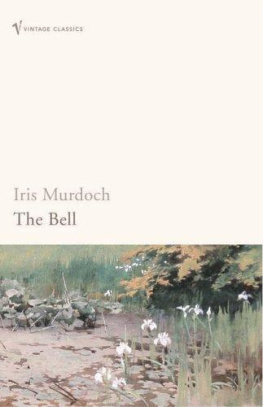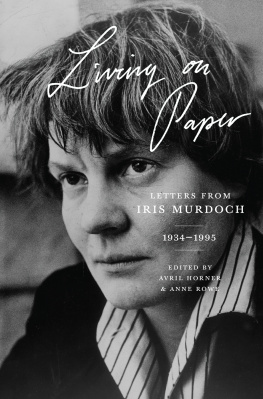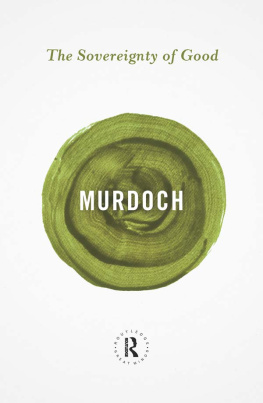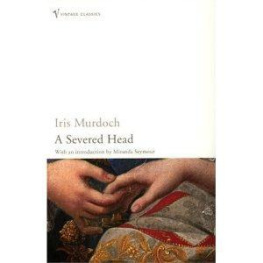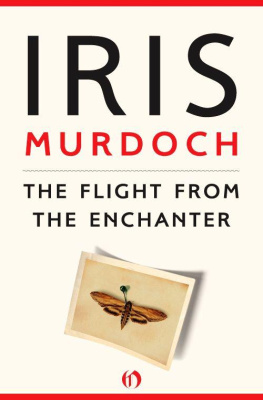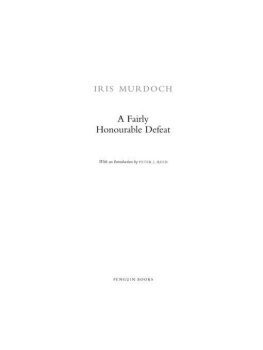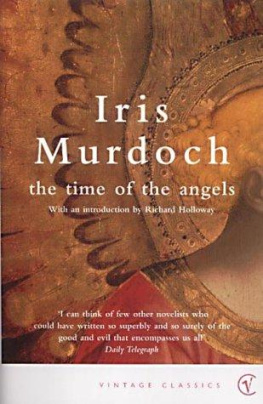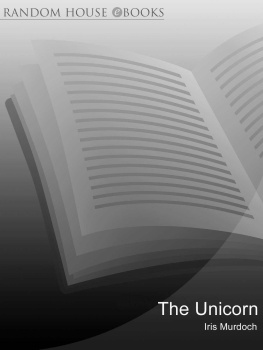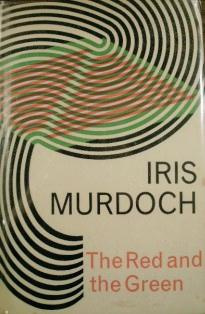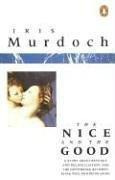Iris Murdoch - A word child
Here you can read online Iris Murdoch - A word child full text of the book (entire story) in english for free. Download pdf and epub, get meaning, cover and reviews about this ebook. year: 2002, publisher: Vintage, genre: Art / Prose. Description of the work, (preface) as well as reviews are available. Best literature library LitArk.com created for fans of good reading and offers a wide selection of genres:
Romance novel
Science fiction
Adventure
Detective
Science
History
Home and family
Prose
Art
Politics
Computer
Non-fiction
Religion
Business
Children
Humor
Choose a favorite category and find really read worthwhile books. Enjoy immersion in the world of imagination, feel the emotions of the characters or learn something new for yourself, make an fascinating discovery.
- Book:A word child
- Author:
- Publisher:Vintage
- Genre:
- Year:2002
- Rating:5 / 5
- Favourites:Add to favourites
- Your mark:
- 100
- 1
- 2
- 3
- 4
- 5
A word child: summary, description and annotation
We offer to read an annotation, description, summary or preface (depends on what the author of the book "A word child" wrote himself). If you haven't found the necessary information about the book — write in the comments, we will try to find it.
A word child — read online for free the complete book (whole text) full work
Below is the text of the book, divided by pages. System saving the place of the last page read, allows you to conveniently read the book "A word child" online for free, without having to search again every time where you left off. Put a bookmark, and you can go to the page where you finished reading at any time.
Font size:
Interval:
Bookmark:
Iris Murdoch
A Word Child
1975
To Peter Ady
I SAY, an absolutely stunning coloured girl was here looking for you.
She was looking for you.
No. I offered myself. She was uninterested. She said she wanted to see Mr Hilary Burde.
That was me. Oh. It was all very improbable however. Did she say what she wanted?
No. By the way, the rubbish chute is jammed again.
The first speaker was my lodger Christopher Cather. We had met accidentally in the street, I on my return from the office, he on his return from whatever he did during the day. We were in the lift. The lift held two people and rose slowly, groaning with diffidence. To intensify mutual inspection it contained a long mirror. Christopher was easy to look at.
We emerged on our floor, the fourth, where a smell confirmed the jamming of the rubbish chute. Mr Pellow, a suspended schoolmaster, standing half inside the doorway of the next door flat, retired slowly. He wanted a drinking companion. Christopher and I shunned him.
We entered our own flat. I picked up two letters which were lying on the floor. We parted company, I to my bedroom, he to his. I turned on the light, revealing my unmade bed, a pile of underwear, dust upon the discarded debris of my struggle with the world. I stuffed the underwear inside the bed and dragged up the blankets, inhaling without displeasure the familiar badger smell. The curtains had remained pulled across the windows since my hurried early morning departure into the dark. It was winter: November, with late gloomy dawns and a cold wind smacking the leaves about on sticky pavements. The season suited me. Even at forty-one it dawns on one that one will not live forever. Adieu jeunesse.
My home was a small mean nasty flatlet in Bayswater, in a big square red-brick block in a cul-de-sac. Outside the cul-de-sac was a busy noisy street, beyond that street were some modest dingy shops, beyond the shops was Bayswater tube station (District Line and Inner Circle), beyond that was Queensway tube station (Central Line), beyond that was Bayswater Road, and beyond that was, thank God, the park. I instinctively denigrate my flat: it was doubtless my own life which was small and nasty. The flat was certainly cramped and dark, looking out onto a maze of fire escapes in a sunless well. There were three little rooms, my bedroom, Christophers bedroom, and the so-called sitting-room into which Christopher, who preferred life at floor level, had lately moved most of the furniture, including the bed, out of his own room. Thus rendered uninhabitable, the sitting-room was never used in any case. The flat was simply a machine dormir as far as I was concerned. I never spent my evenings there as the place swarmed with demons. The week-ends posed problems. I cursed the five-day week. I had never attempted decoration, having no taste. I desired no personal objects, no elegance, nothing that could remind me of the past. There was nothing here to love.
I will briefly explain Christopher. Christopher, whose estranged father was a solicitor in Essex, was, at the time of this story, twenty-three, but already had a glorious past. He was rather beautiful and turned many heads, including some in the pages which follow. He was tall and extremely thin with a lot of tangled fairish hair hanging to his shoulders and a narrow face of clear-complexioned pallor. In summer he had freckles. His eyes were of a blue so pale as to have given him an appearance of weakness had not his large straight nose manifested a countervailing strength. He was graceful, it was like having a lynx or a leopard around the place. He always wore what I would describe as fancy dress. As a lodger he was less than satisfactory, being an out-of-work genius. At least he did occasionally work, cleaning peoples flats. I do not know who the lunatics were who allowed Christopher to clean their flats. The glorious past amounted to this, that at the age of eighteen Christopher created and led a pop group called the Treason of the Clerks which had a brief but considerable success. The success took place mainly on a tour of Australia, but one of the Treasons songs made the top ten in this country. It was called Waterbird and may still be remembered by connoisseurs. It was a song about somebody leaving somebody and the chorus ran Think again, waterbird, do do do, waterbird, waterbird, boo boo boo, or something of the sort. The group made a lot of money (which vanished leaving only debts to the Income Tax) and then broke up. One stayed in Sydney, one went to Mexico, another (the composer of Waterbird) took to heroin and died. Christopher returned to London and for a while earned a precarious living as an organizer of happenings. (His father paid the Income Tax.) Then he underwent a conversion to Buddhism and dedicated himself to overcoming duality and passing beyond the bounds of conceptual thought. He was wished on me as a lodger by a friend who said, as you need money and are never in why not let a room? Christopher now owed six weeks rent. At least he obeyed the rules I made: no hi fi, no girls, not more than three visitors at a time, no eating of chocolate in the house, no discussions of sex in my presence (etcetera, etcetera). Girls in the flat would have disturbed me. Boys came and went, especially two, Mick Ladderslow and Jimbo Davis. Mick was a layabout from a rich family who wanted Christopher to start a new group to be called The Waterbirds (only Christopher was now given to God). Jimbo was a ballet dancer and even more graceful than Christopher, a laconic Welsh boy whom I liked and who could at least dance. (I saw him do so once in a theatre.) Mick had no talents except for trouble. I thought of them as students though they studied nothing but pleasure. They were beautiful mindless creatures who padded in and out like animals; I did not have the unnerving feeling of being surrounded by rational beings. They (and sometimes others) would sit in Christophers room and partake of various drugs, a remarkably quiet occupation of which I took care to know nothing. Christopher was learning to play the tabla, a dreary little oriental drum, but at least it was not a noisy instrument and would always stop abruptly at my command. In general they were, for young people, all remarkably silent, sitting together I presumed in a kind of daze, in intervals of drawing mandalas and consulting the I Ching. I did not know whether these boys were queer (in the slang sense). Quite possibly not. Christopher said he had had a surfeit of girls in the old Treason days when they were all over him. I felt sorry for him. There is nothing like early promiscuous sex for dispelling lifes bright mysterious expectations.
The wind was moodily rattling the windows, producing that odd not unpleasant sense of solitude which winter winds evoke. After a long day in the office and undergoing my fellow men in the tube rush hour I felt tired and crumpled and begrimed with weariness. A hard monotonous life favours salvation, so the sages say. There must have been some other element, absent in my case. Oh the piercing sadness of life in the midst of its ordinariness! I looked at the two letters. One was from Tommy, and I set that aside unopened. The other was the telephone account. I opened this and studied it. Then I went out and kicked Christophers door and entered. Christopher was sitting cross-legged on the floor examining some stuff in a box. He looked up guiltily and when he saw the telephone account in my hand he blushed. He had a remarkable gift for blushing.
Christopher, I said, you promised you would not make any more long-distance calls.
Christopher stood up. Im very sorry, Hilary, I ought to have told you at the time, only I was too scared to, please dont be cross! I promise it wont happen again.
You promised last time. Or was that a Buddhist promise, remote from the world of mere appearance where one pays telephone bills?
Next pageFont size:
Interval:
Bookmark:
Similar books «A word child»
Look at similar books to A word child. We have selected literature similar in name and meaning in the hope of providing readers with more options to find new, interesting, not yet read works.
Discussion, reviews of the book A word child and just readers' own opinions. Leave your comments, write what you think about the work, its meaning or the main characters. Specify what exactly you liked and what you didn't like, and why you think so.

